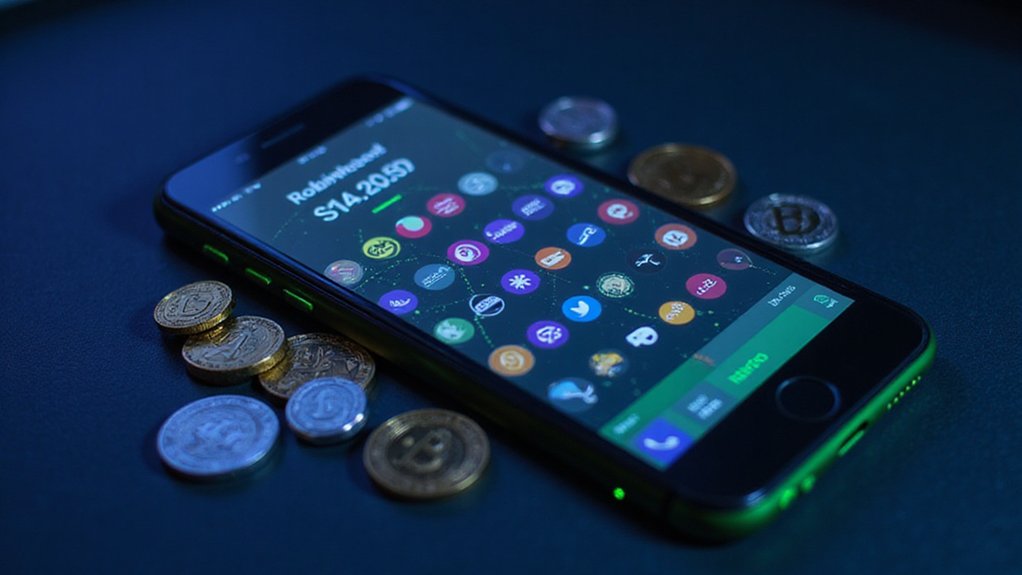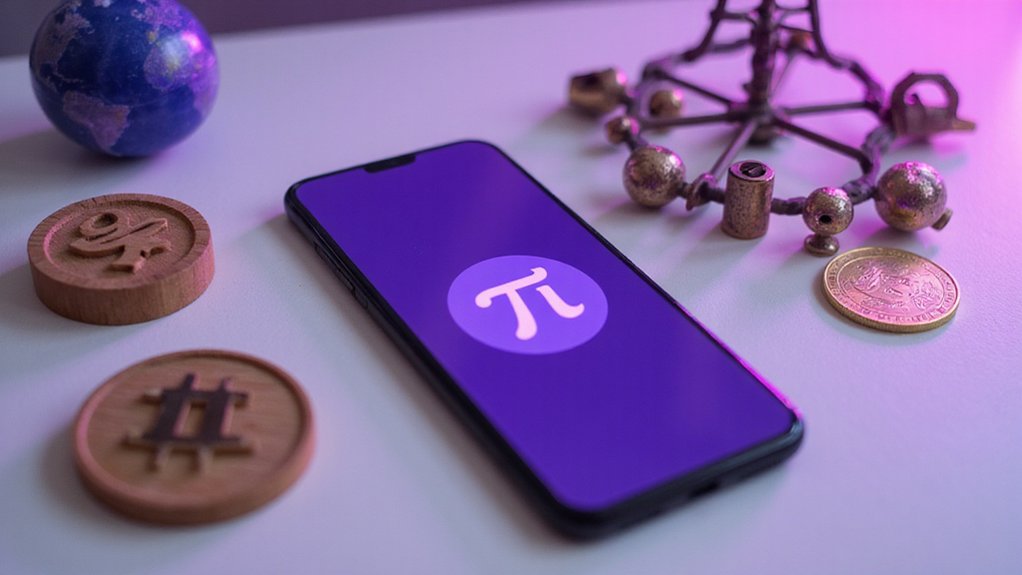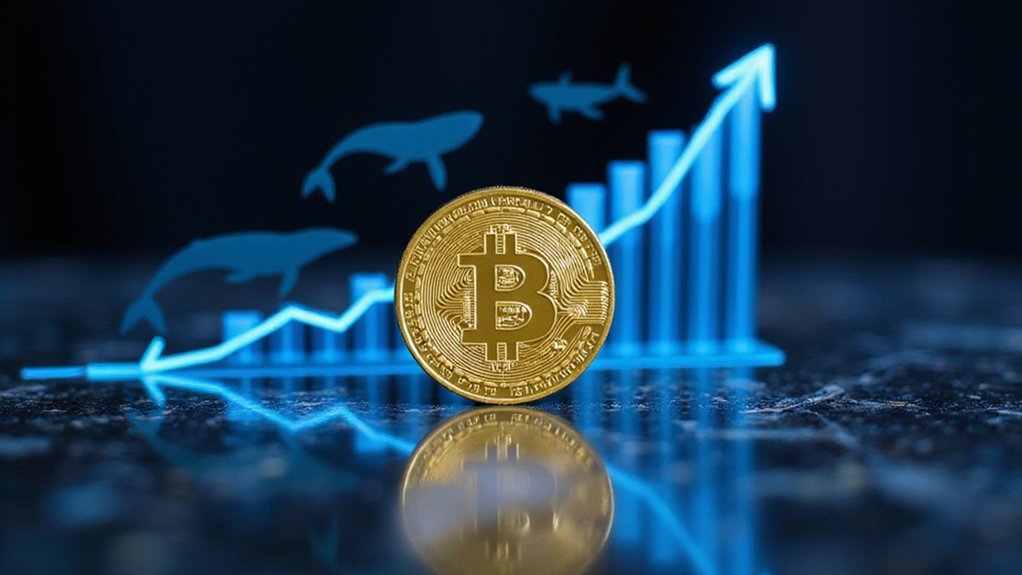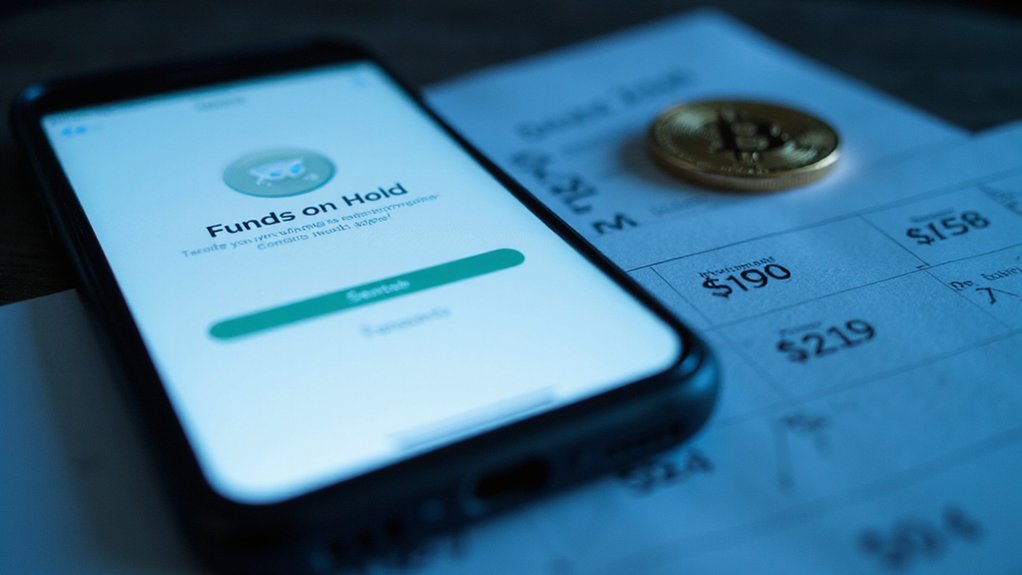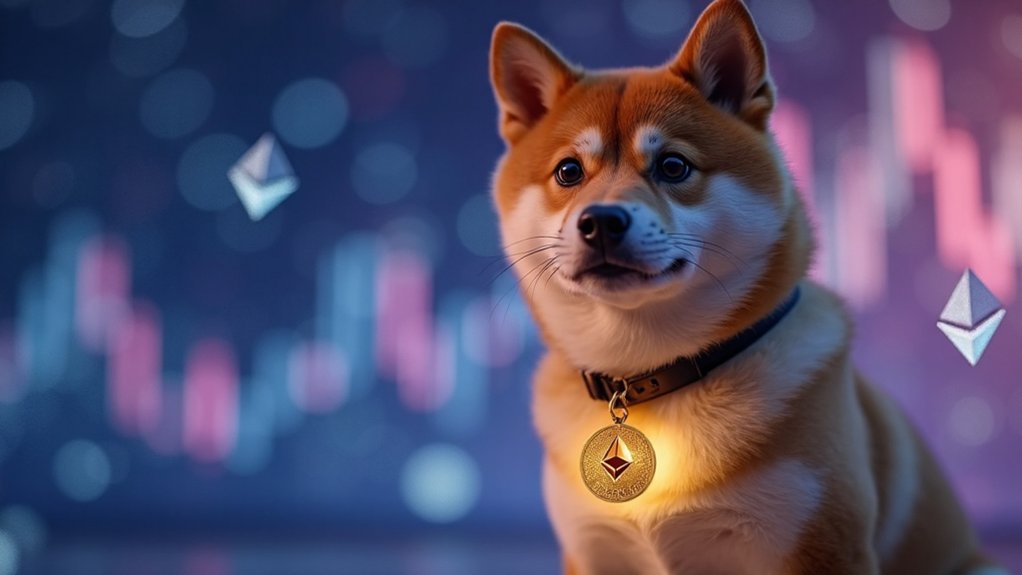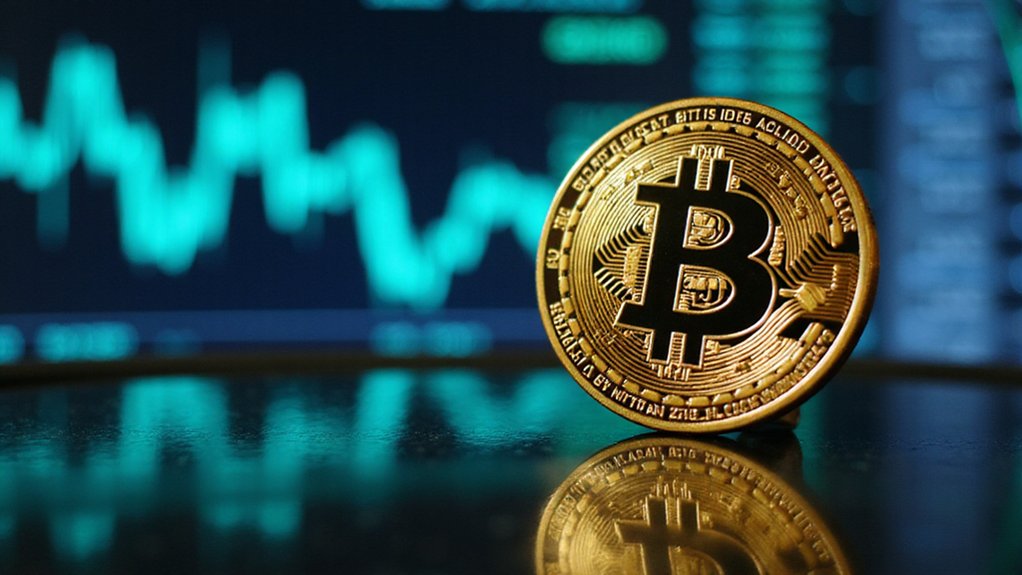Robinhood offers 19 cryptocurrencies for commission-free trading, spanning from established giants like Bitcoin and Ethereum to blockchain networks such as Solana and Cardano. The platform’s roster has expanded to include meme tokens (DOGE, PEPE, BONK) alongside serious projects, all purchasable fractionally starting at $1. Availability varies by state due to regulatory constraints—a necessary friction in the curious intersection of retail finance and digital assets. Further exploration reveals the platform’s strategic balancing act.

The democratization of cryptocurrency trading—once the exclusive domain of tech-savvy early adopters with specialized wallets and exchange accounts—has reached its logical conclusion on Robinhood’s sleek, commission-free platform.
Users can now purchase an ever-expanding roster of digital assets including stalwarts like Bitcoin and Ethereum alongside the more whimsical entries in the crypto menagerie (one struggles not to raise an eyebrow at the meteoric rise of canine-themed tokens like Dogecoin and its spiritual successor, Dogwifhat).
The crypto universe now spans from Bitcoin’s gravitas to the frivolity of dog-inspired tokens that somehow capture millions in market capitalization.
Robinhood’s cryptocurrency selection has evolved substantially, now encompassing more than a dozen options spanning established blockchain networks (Solana, Cardano, Avalanche) and the meme coin phenomenon that continues to defy conventional valuation metrics.
The platform’s inclusion of tokens like PEPE and BONK—investments whose very nomenclature would befuddle traditional finance veterans—represents an acknowledgment of retail investors’ appetite for speculative digital assets regardless of their underlying utility.
The platform’s frictionless approach extends to accessibility, with investors able to commence their crypto portfolio with a mere dollar—a far cry from the days when whole-unit purchases presented prohibitive barriers to entry.
This fractional ownership model, coupled with the absence of commission fees, has rendered cryptocurrency investment feasible for the masses rather than the financial elite.
Robinhood’s user-friendly mobile app serves as the primary interface for crypto trading, making complex transactions accessible even to those with minimal investment experience.
Availability remains subject to the labyrinthine regulatory landscape governing digital assets, with certain tokens accessible only in specific states or through limited trading channels.
Robinhood’s careful navigation of these constraints reflects the tension between innovation and compliance that characterizes the contemporary crypto market.
The company’s regular additions to its cryptocurrency lineup—including the notable 2024 integration of XRP following years of regulatory uncertainty—demonstrates an ongoing commitment to expanding access while maintaining necessary guardrails.
Through its educational resources and streamlined user experience, Robinhood continues to position itself as the retail investor’s gateway to a crypto ecosystem that remains equal parts promising and perplexing to mainstream financial observers. With the recent additions of coins like Solana, Pepe, Cardano, and XRP, the total number of cryptocurrencies available on the platform has reached 19 different assets.
Frequently Asked Questions
What Are the Fees for Crypto Trading on Robinhood?
Robinhood maintains its allure in the crypto space through a particularly streamlined fee structure—no commissions on cryptocurrency transactions (a rarity that deserves acknowledgment).
However, traders should remain cognizant that network fees still apply, those unavoidable tributes to blockchain miners and validators that fluctuate with network congestion.
The platform also eschews minimum balance requirements while reserving the right to modify its fee structure based on customer status or promotional offers.
Can I Transfer My Crypto to External Wallets From Robinhood?
Users can indeed transfer cryptocurrencies from Robinhood to external wallets, provided they’ve completed identity verification and enabled two-factor authentication.
Robinhood supports transfers across multiple networks including Bitcoin, Ethereum, Solana, and others—though approval may take up to five business days.
The process requires careful attention to network compatibility; sending assets across mismatched networks is a one-way ticket to digital oblivion.
Ownership verification may be required for self-custody transfers.
Are There Limits on Cryptocurrency Purchases?
Robinhood imposes no specified percentage limits on cryptocurrency purchases, though operational constraints exist.
Market orders face “collaring” to prevent dramatic price swings, effectively converting them to limit orders.
Buying power is required for acquisitions, as crypto cannot serve as collateral.
While deposit limits are nonexistent, withdrawal capabilities vary by payment method, with specific daily and monthly thresholds for different transaction types.
Account restrictions may further impede trading activities.
How Quickly Can I Sell Crypto and Withdraw Funds?
Selling crypto on Robinhood executes nearly instantaneously with market orders, while limit orders await price targets.
Fund withdrawal, however, proceeds at banking’s glacial pace.
After liquidation, standard bank transfers typically require 1-3 business days—that temporal purgatory where money exists somewhere in the financial ether.
Those requiring immediate gratification may leverage instant transfers (for a fee, naturally), though even “instant” remains subject to Robinhood’s processing limitations.
Does Robinhood Offer Cryptocurrency Staking Options?
Robinhood offers cryptocurrency staking, though with limited options compared to dedicated platforms.
Currently, only ETH and SOL staking is available, exclusively for European customers as of late 2024.
Their staking model provides flexibility without lock-up periods, distributing pooled validator rewards proportionally (50-100% of protocol rates).
A temporary promotion offers 100% earnings match on staked assets up to €10,000—a rare instance where financial institutions seem genuinely interested in customer enrichment.
